China's cassava cultivation know-how ignites new hope in Africa
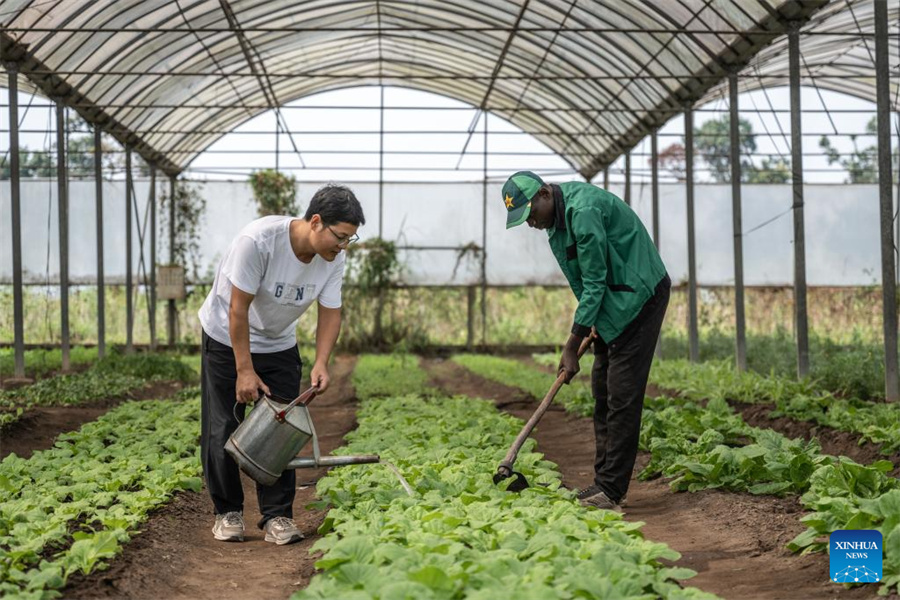
Chinese expert Li Keming (L) and a local employee tend patches in a greenhouse of the China-Aid Agriculture Technology Demonstration Center in Brazzaville, the Republic of the Congo, Aug. 3, 2024.
Cassava is an important staple food in Africa, but its output has long been bottlenecked by a lack of better varieties, advanced farming techniques and processing facilities. China, though not a large producer of the starchy tubers, is an important market for the crop and a global research powerhouse of cassava-related technologies.
Amid the booming agricultural cooperation between China and Africa in recent years, new cassava varieties, farming and processing techniques from China are quickly taking root in Africa through technical training and jointly-built demonstration bases.
In November 2023, agricultural experts from the Chinese Academy of Tropical Agricultural Sciences (CATAS) unveiled ambitious plans to enhance cassava cultivation across Africa, a continent heavily reliant on starchy tubers for sustenance.
Cooperation in cassava farming represents the latest outcome of the burgeoning agricultural collaboration between China and Africa. By the end of 2023, China had sent more than 400 agricultural experts to Africa and trained over 10,000 agricultural technical and management personnel for African countries.
Many African countries have benefited from Chinese farming technology and expertise, which have remarkably improved the yield and quality of staple crops, enriching the diversity of African diets and forging fresh pathways for the region's agricultural progress. [Xinhua/Zheng Yangzi]
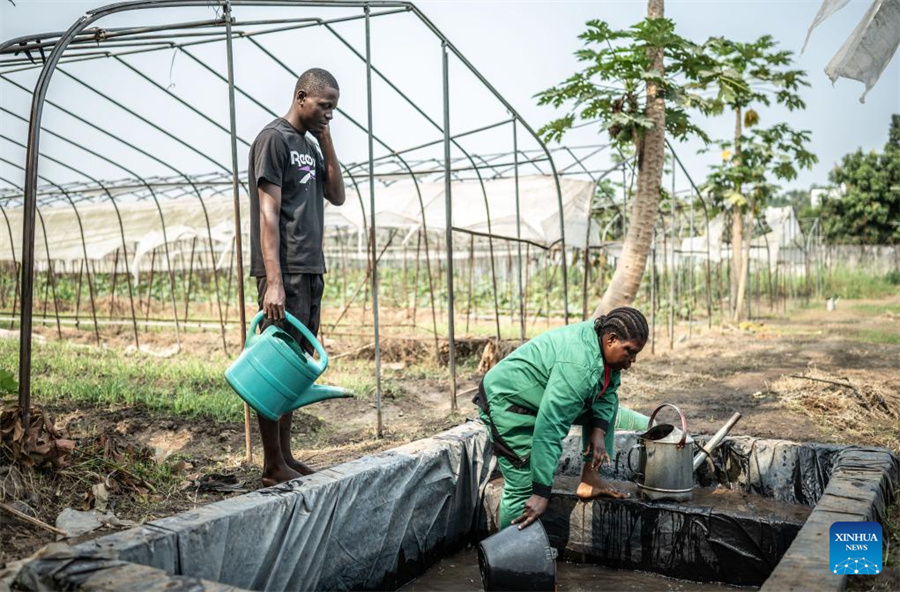
Local employees fetch water for irrigation at the China-Aid Agriculture Technology Demonstration Center in Brazzaville, the Republic of the Congo, Aug. 3, 2024.[Xinhua/Wang Guansen]
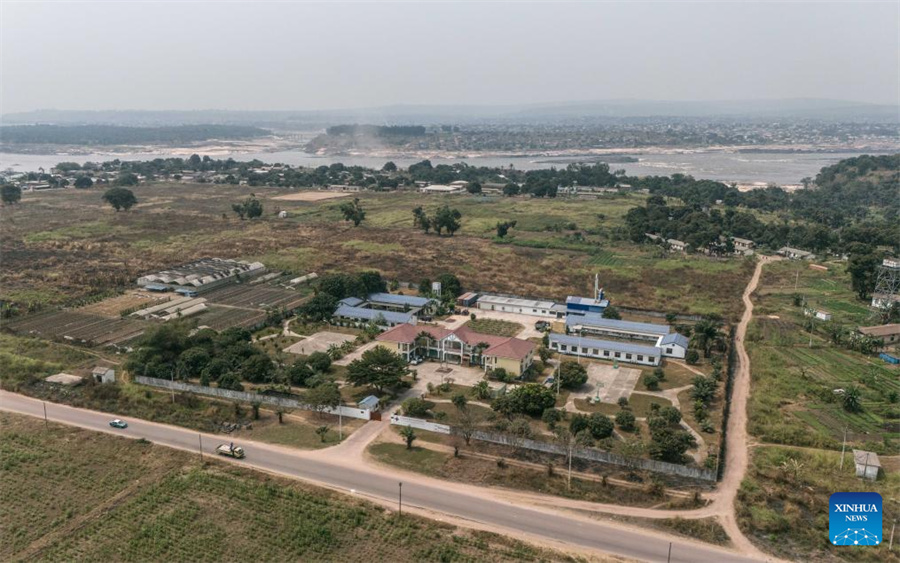
An aerial drone photo taken on Aug. 3, 2024 shows the China-Aid Agriculture Technology Demonstration Center in Brazzaville, the Republic of the Congo.[Xinhua/Wang Guansen]
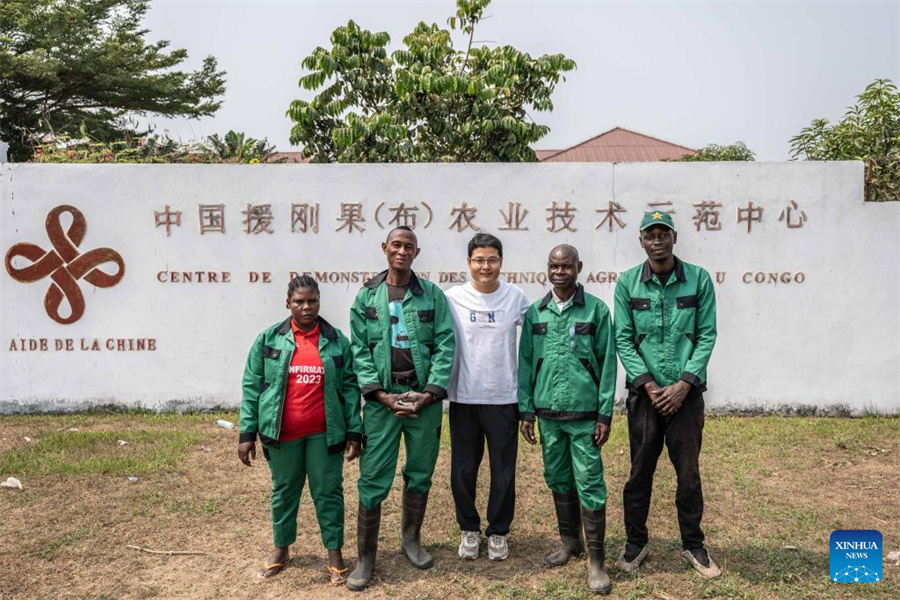
Chinese expert Li Keming (C) and local employees pose for a group photo outside the China-Aid Agriculture Technology Demonstration Center in Brazzaville, the Republic of the Congo, Aug. 3, 2024. [Xinhua/Zheng Yangzi]
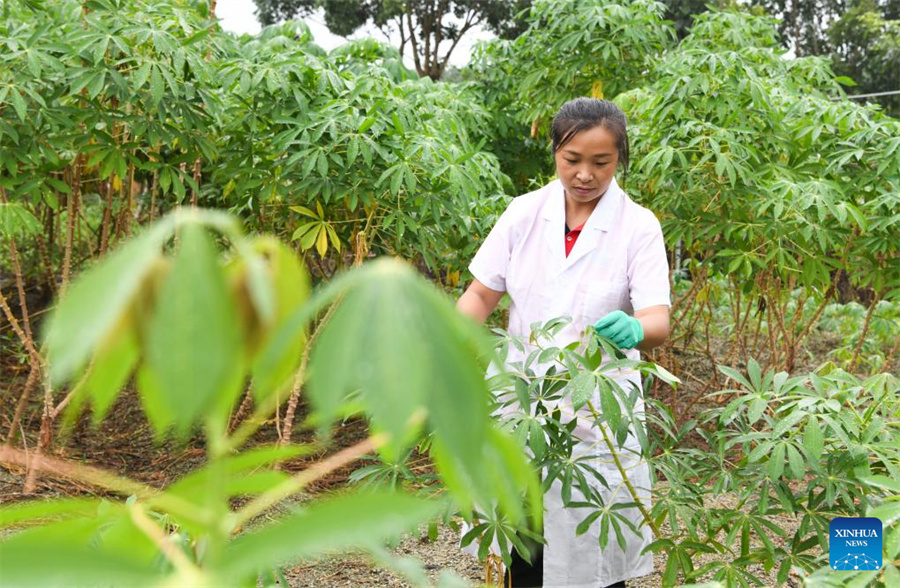
A researcher from the Chinese Academy of Tropical Agricultural Sciences checks the growth of cassava in the National Cassava Germplasm Repository in Danzhou, south China's Hainan Province, Nov. 13, 2023. [Xinhua/Yang Guanyu]
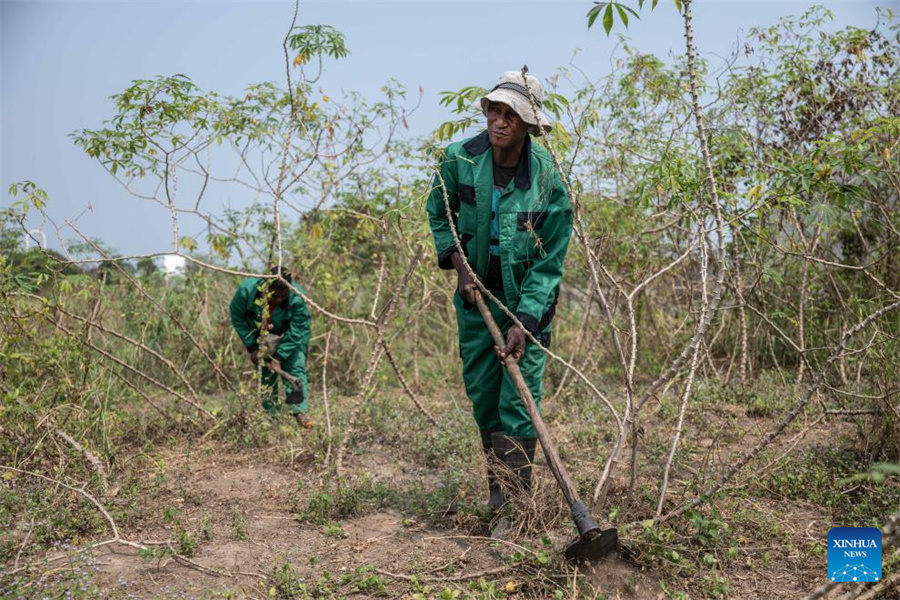
Local employees harvest cassava at the China-Aid Agriculture Technology Demonstration Center in Brazzaville, the Republic of the Congo, Aug. 3, 2024.[Xinhua/Wang Guansen]
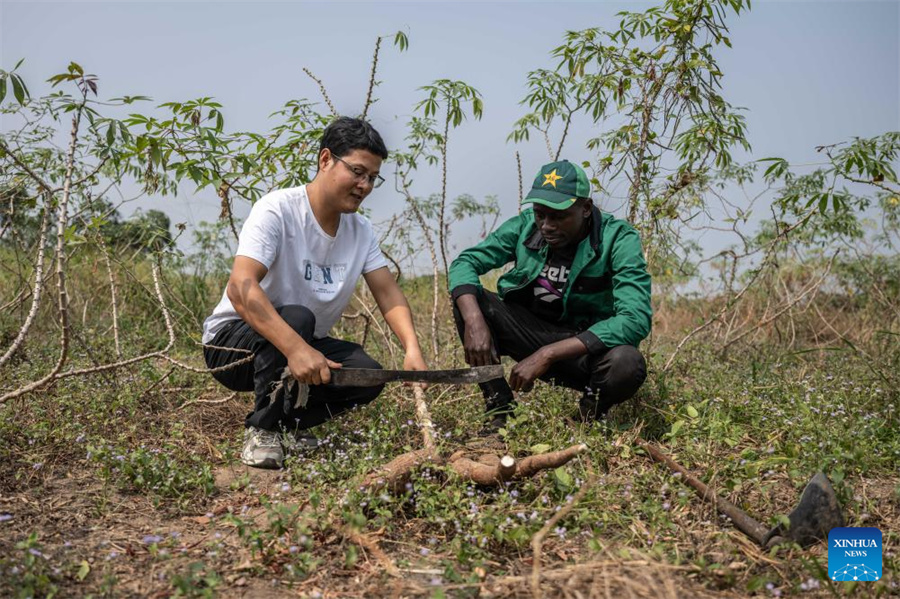
Chinese expert Li Keming (L) and a local employee harvest cassava at the China-Aid Agriculture Technology Demonstration Center in Brazzaville, the Republic of the Congo, Aug. 3, 2024. [Xinhua/Wang Guansen]
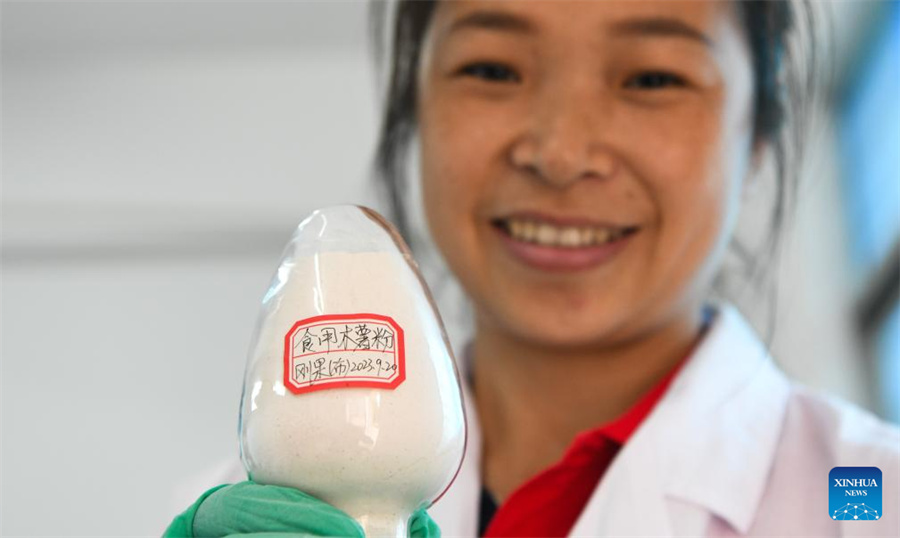
A researcher shows cassava flour, retrieved from the China-Aid Agriculture Technology Demonstration Center in the Republic of the Congo, at a lab in the Tropical Crops Genetic Resources Institute of Chinese Academy of Tropical Agricultural Sciences in Danzhou, south China's Hainan Province, Nov. 13, 2023.[Xinhua/Yang Guanyu]
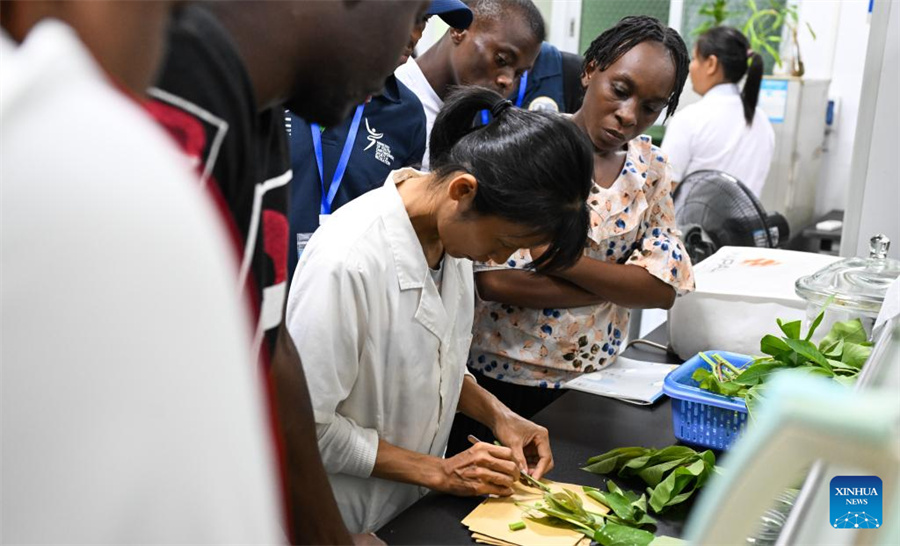
A Chinese expert explains cassava breeding techniques to African students at a lab of Chinese Academy of Tropical Agricultural Sciences in south China's Hainan Province, Sept. 17, 2023. [Xinhua/Yang Guanyu]
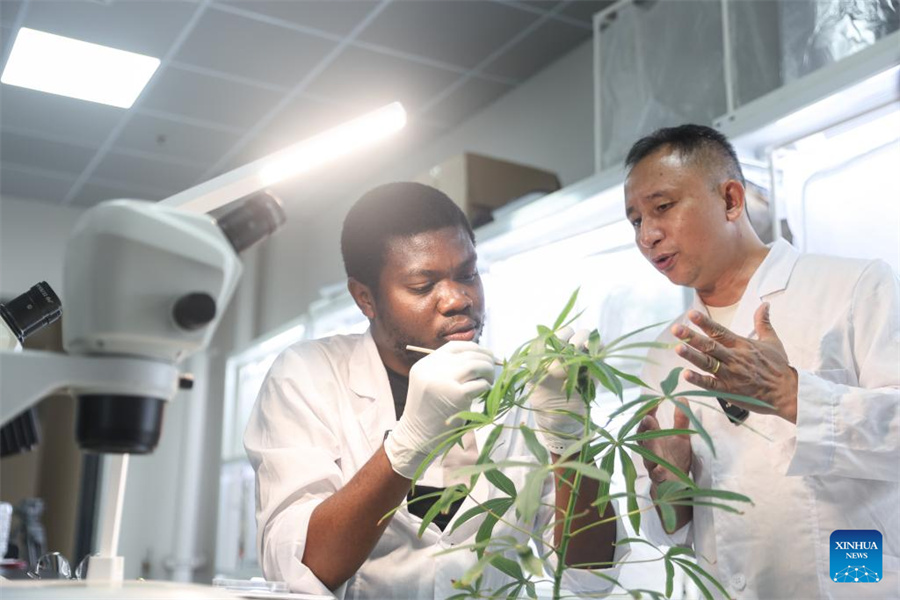
Chinese researcher Chen Qing (R) helps a Nigerian student perform an experiment on cassava pest control at the Sanya Research Institute of Chinese Academy of Tropical Agricultural Sciences in Sanya, south China's Hainan Province, July 17, 2024. [Xinhua/Zhang Liyun]
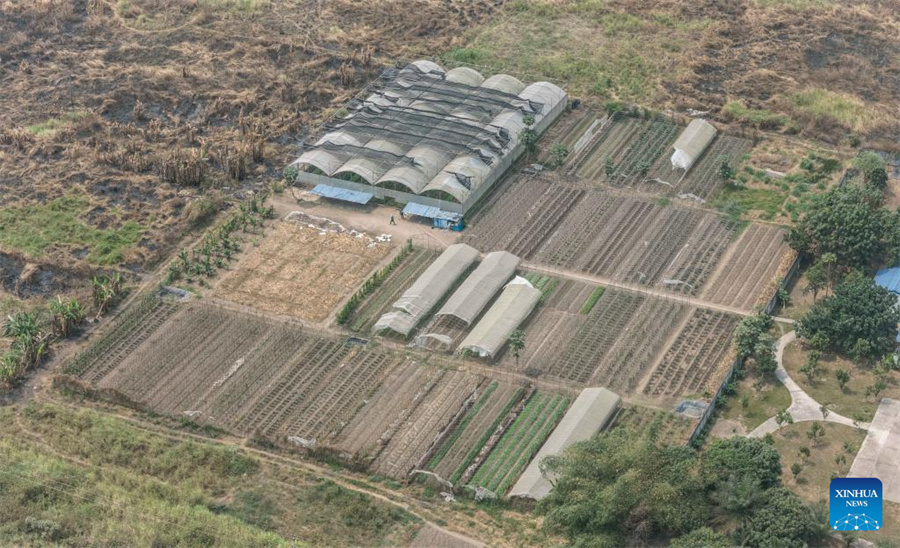
An aerial drone photo taken on Aug. 3, 2024 shows greenhouses at the China-Aid Agriculture Technology Demonstration Center in Brazzaville, the Republic of the Congo. [Xinhua/Wang Guansen]
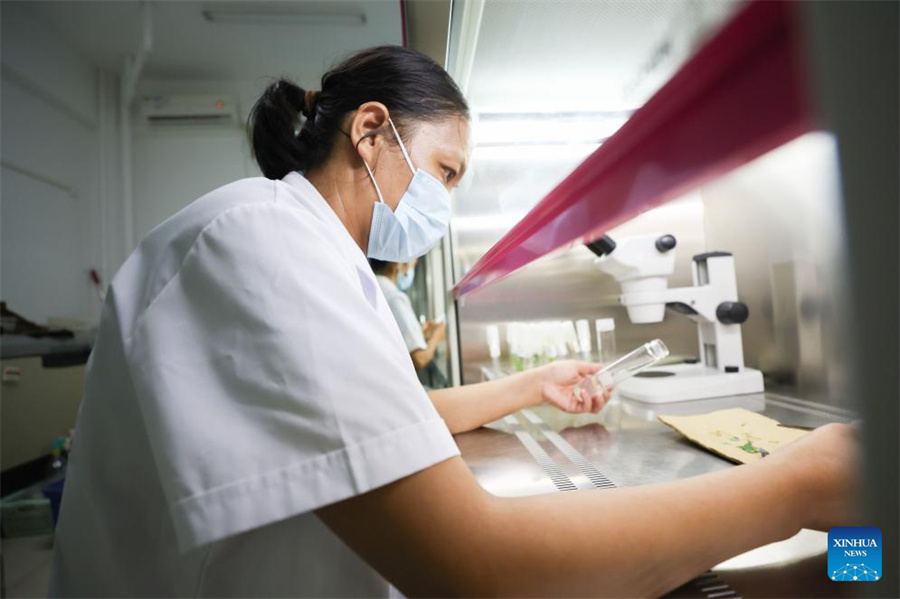
A researcher works on subculture of cassava in a lab at the Danzhou campus of Chinese Academy of Tropical Agricultural Sciences in Danzhou, south China's Hainan Province, July 10, 2024. [Xinhua/Zhang Liyun]
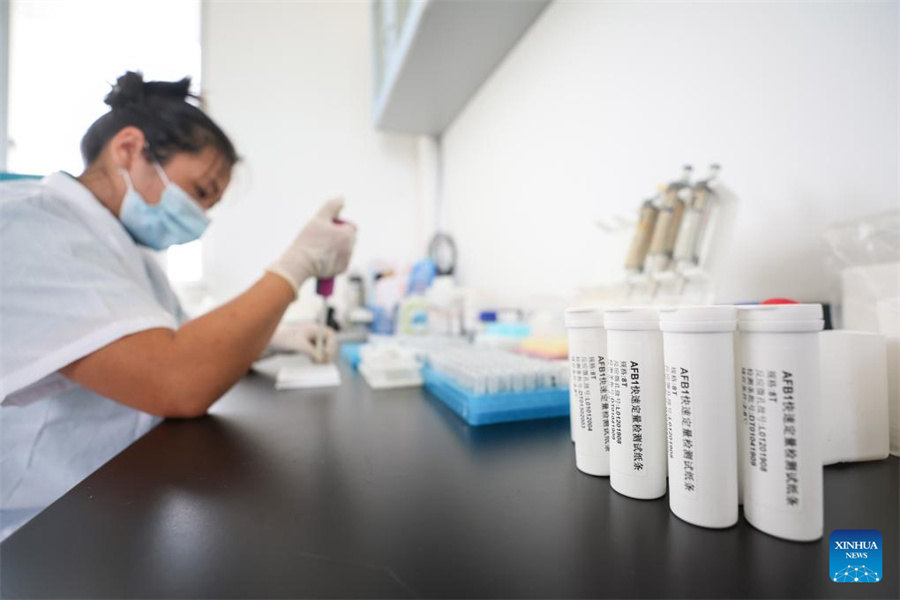
A researcher tests cassava content at a lab at the Danzhou campus of Chinese Academy of Tropical Agricultural Sciences in Danzhou, south China's Hainan Province, July 10, 2024. [Xinhua/Zhang Liyun]
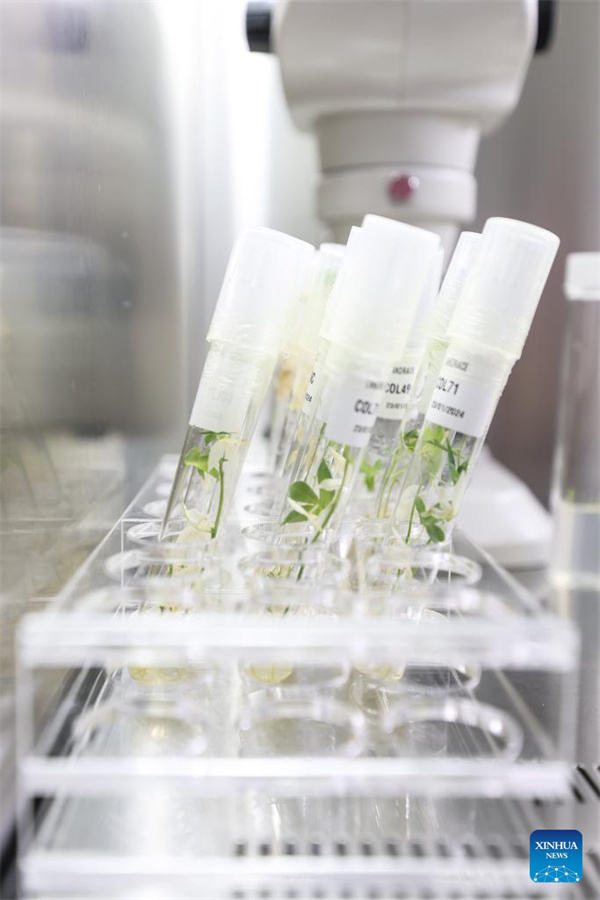
Cassava seedlings are pictured at the Danzhou campus of Chinese Academy of Tropical Agricultural Sciences in Danzhou, south China's Hainan Province, July 10, 2024. [Xinhua/Zhang Liyun]
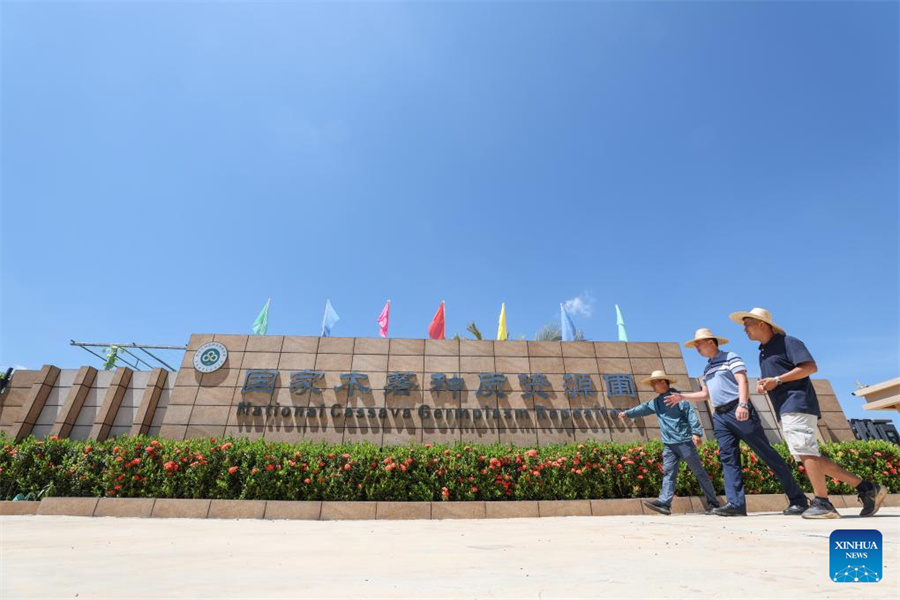
People walk past the National Cassava Germplasm Repository in Danzhou, south China's Hainan Province, July 10, 2024.(Xinhua/Zhang Liyun)
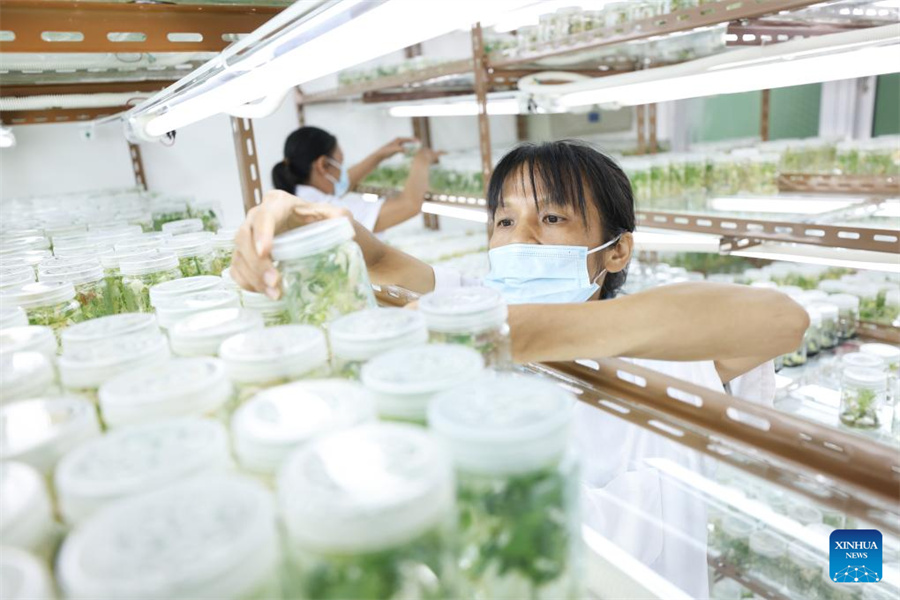
Researchers observe cassava seedlings at a lab at the Danzhou campus of Chinese Academy of Tropical Agricultural Sciences in Danzhou, south China's Hainan Province, July 10, 2024. [Xinhua/Zhang Liyun]
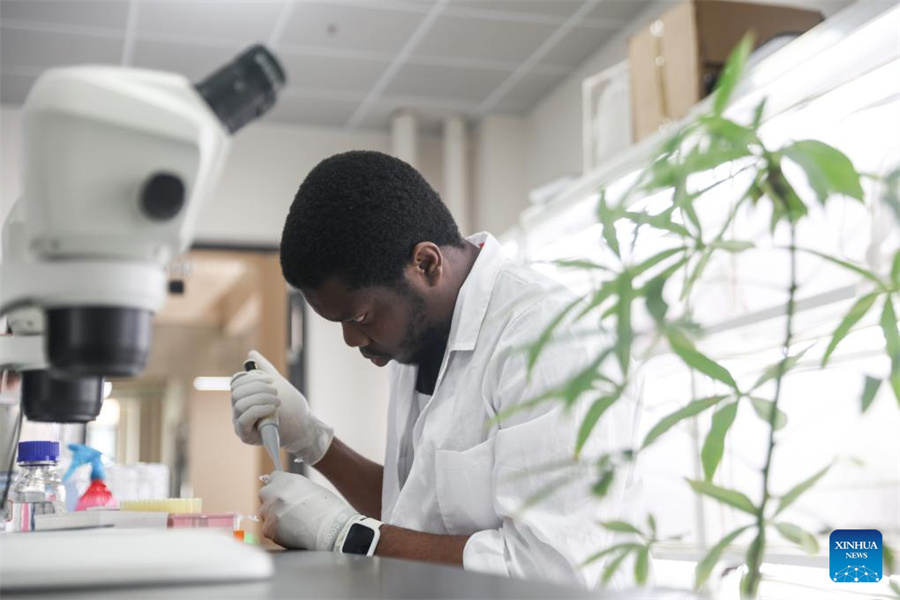
A Nigerian student performs an experiment on cassava pest control at the Sanya Research Institute of Chinese Academy of Tropical Agricultural Sciences in Sanya, south China's Hainan Province, July 17, 2024. [Xinhua/Zhang Liyun]
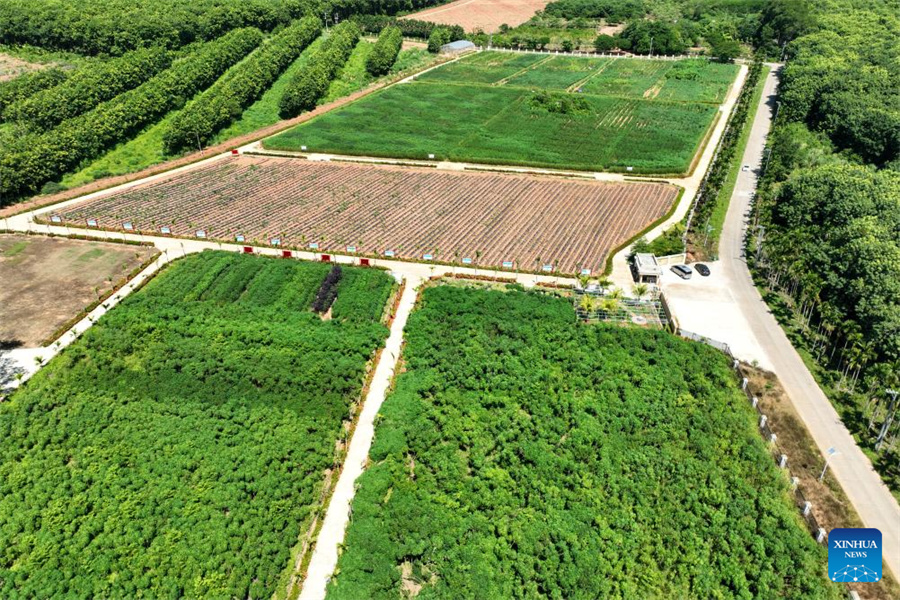
An aerial drone photo taken on July 10, 2024 shows a view of the National Cassava Germplasm Repository in Danzhou, south China's Hainan Province.[Xinhua/Zhang Liyun]
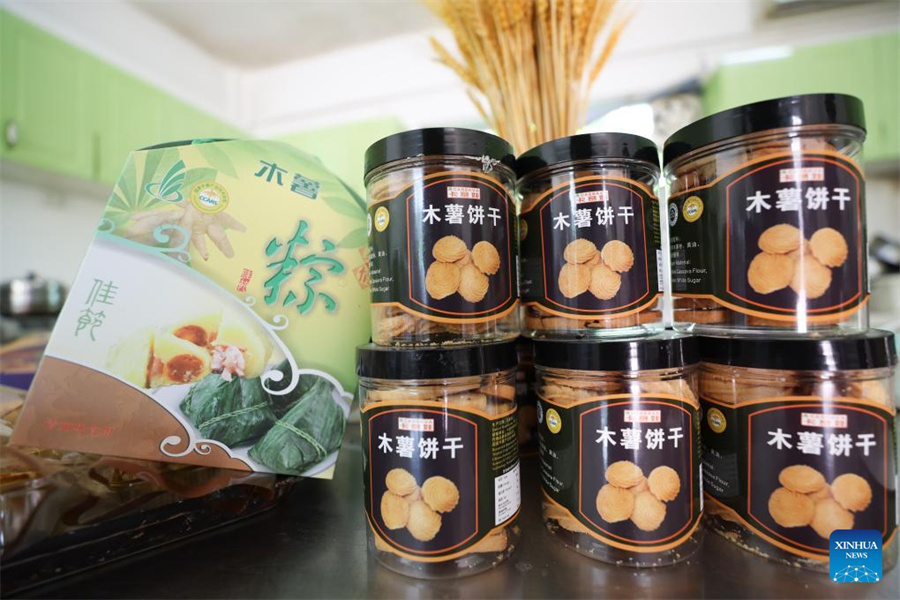
Cassava-based food products are pictured at the Danzhou campus of Chinese Academy of Tropical Agricultural Sciences in Danzhou, south China's Hainan Province, July 10, 2024. [Xinhua/Zhang Liyun]
























